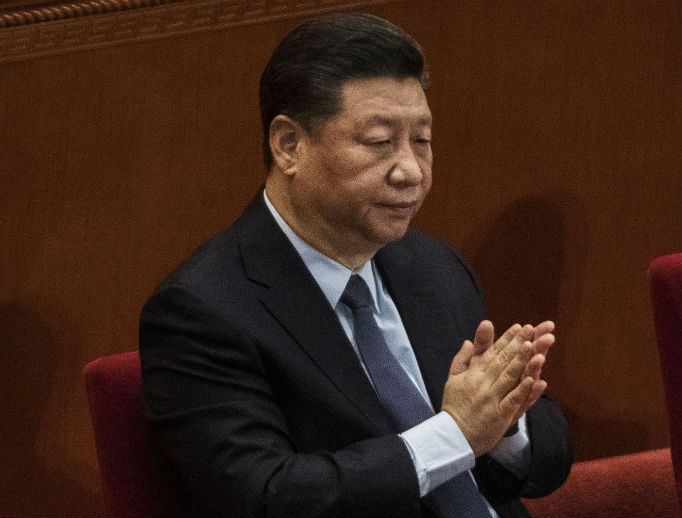China’s President Xi Jinping Unlikely to Meet Pope Francis During Rome Trip
Vatican sources downplay the possibility of a papal audience as President Xi experiences internal opposition about recent agreement between China and the Holy See.

The leader of communist China arrives in Rome on Thursday, his first visit to Italy since the historic agreement last September between Beijing and the Holy See, but a papal audience is thought unlikely.
The Pope and senior Vatican officials strongly want such a meeting with President Xi Jinping to go ahead, coming just six months after a controversial Sino-Vatican two-year provisional agreement on the appointment of bishops.
The agreement also included the lifting of excommunications on seven illegitimate Chinese bishops.
But Vatican sources say a papal audience is unlikely, primarily because President Xi has received internal opposition about the agreement.
The Church, too, has been divided over the accord: The Vatican and the pact's supporters believe it to be a pathway toward the full communion of all Chinese Catholics, who are currently divided into two groups: the state-run Chinese Catholic Patriotic Association and the unofficial, underground Catholic Church in communion with Rome.
Critics such as Cardinal Joseph Zen, the bishop emeritus of Hong Kong, have called the agreement an “incredible betrayal.”
Vatican Secretary of State, Cardinal Pietro Parolin, has been on the diplomatic offensive, trying to win greater support in China.
Writing the preface of a new book entitled The Church in China — A Future Yet to Be Written which is edited by papal adviser, Jesuit Father Antonio Spadaro, he said the Holy See “nurtures no distrust or hostility toward any country.”
The Church’s work in China “cannot be separated from a stance of respect, esteem, and trust toward the Chinese people and their legitimate state authorities,” he wrote.
Cardinal Parolin also said the “urgency of evangelization” requires a “unified approach,” drawing together theology, law, pastoral care, and diplomacy.
“The Pope's concern for the Church and the Chinese People still encounters resistance and opposition,” he wrote, and so he hoped the book will help “overcome simplistic contrasts and untie the knots that still prevent the ‘joy of a fruitful encounter.’"
But despite these many hopes and overtures, there are no signs of a resumption of diplomatic relations (Beijing has always demanded the Holy See cut diplomatic ties with Taiwan as a precondition). Moreover, religious oppression and persecution appear to be continuing and, some critics say, worsening.
Earlier this month it emerged that the agreement is being exploited to compel Chinese Catholics to join the Patriotic Association, the state-run church, despite such compulsion being against Chinese law.
Asia News has reported that for several months, four priests of the underground community loyal to Rome have been kept in an unknown location, subjected to indoctrination and brainwashing to make them join the Patriotic Association.
Father Bernardo Cervellera, Asia News’ editor, also wrote of “the amazing fact” that some bishops, even among those who had their excommunications lifted, “proclaim that it is time to erase” the underground community and join the state-run church (he also quoted a Church official opposed to such an approach). Father Cervellera said he believed a meeting between Xi and the Pope could help iron out those problems.
It is routine for a head of state visiting Italy to call in on the Pope during a visit to Rome, but an informed Vatican source told the Register Tuesday that he “wouldn’t bet on it happening,” and that a “last-minute decision is possible but improbable.”
The source said the Vatican is likely to look toward an historic papal visit to China and its 12 million Catholics, something the Holy See has been planning for at least two years, and which it hopes will take place in 2020.
Reuters reported Chinese Foreign Ministry spokesman Geng Shuang as saying he was unaware of any plans for Xi to meet the Pope, but that China is sincere about wanting to improve ties with the Vatican and has made “relentless efforts to this end.”
President Xi will visit Italy, Monaco and France from March 21-24 with the main purpose of building economic ties.
In Italy, he is expected to sign a Memorandum of Understanding with the Italian government, making it a supporting partner in the Belt and Road Initiative — a vast infrastructure project begun in 2013, involving 152 countries, and supported by Beijing with funds of up to $1 trillion.


















